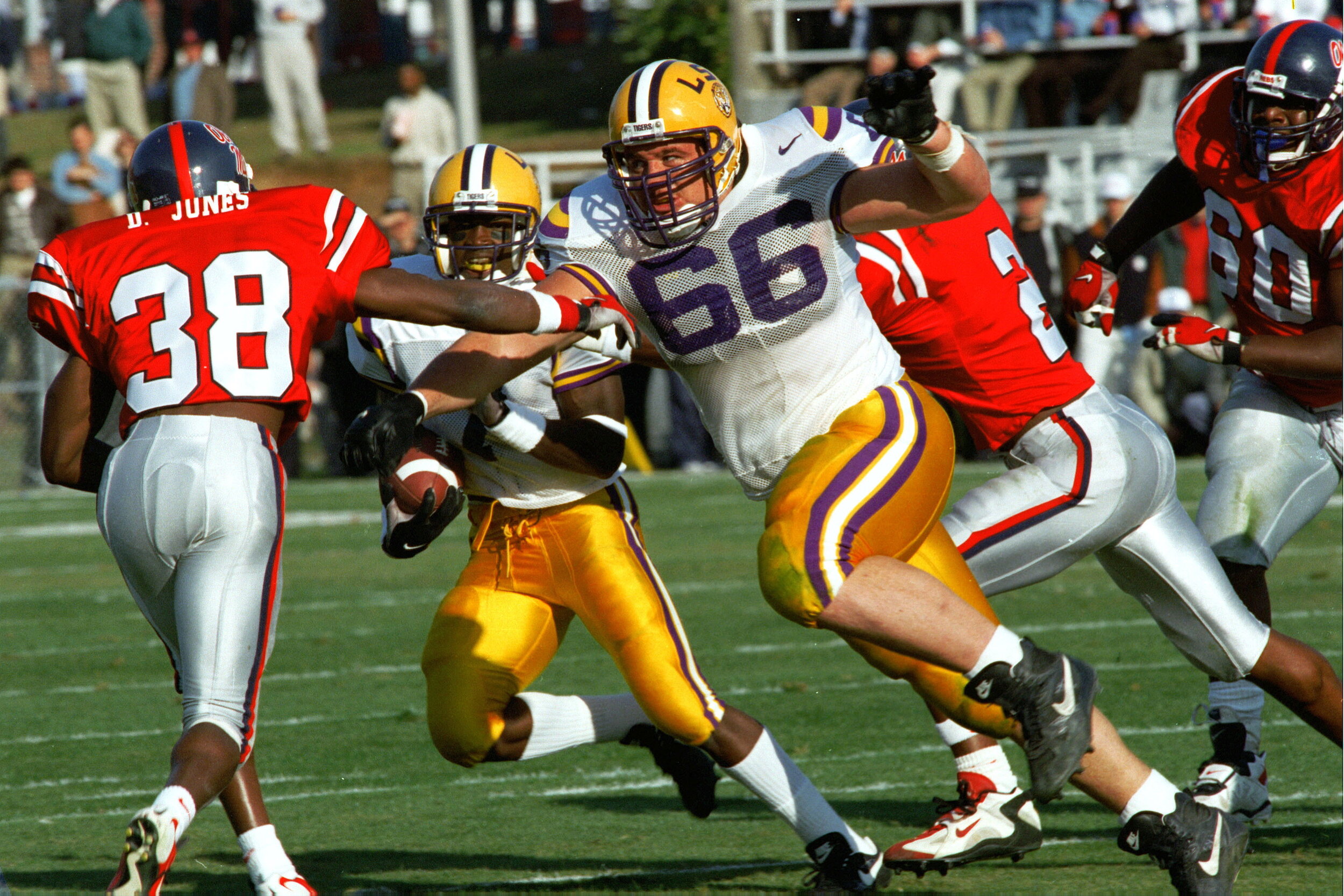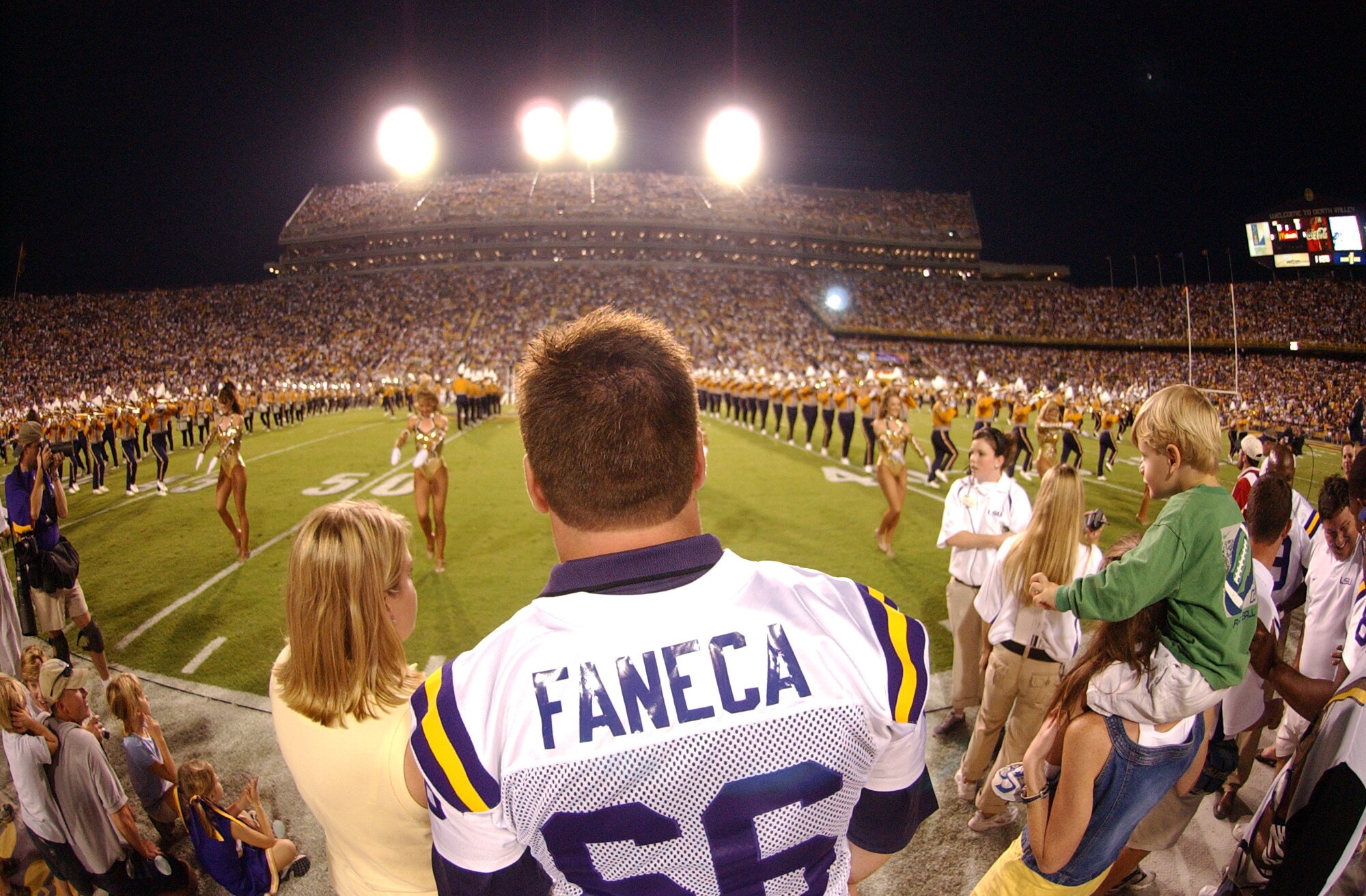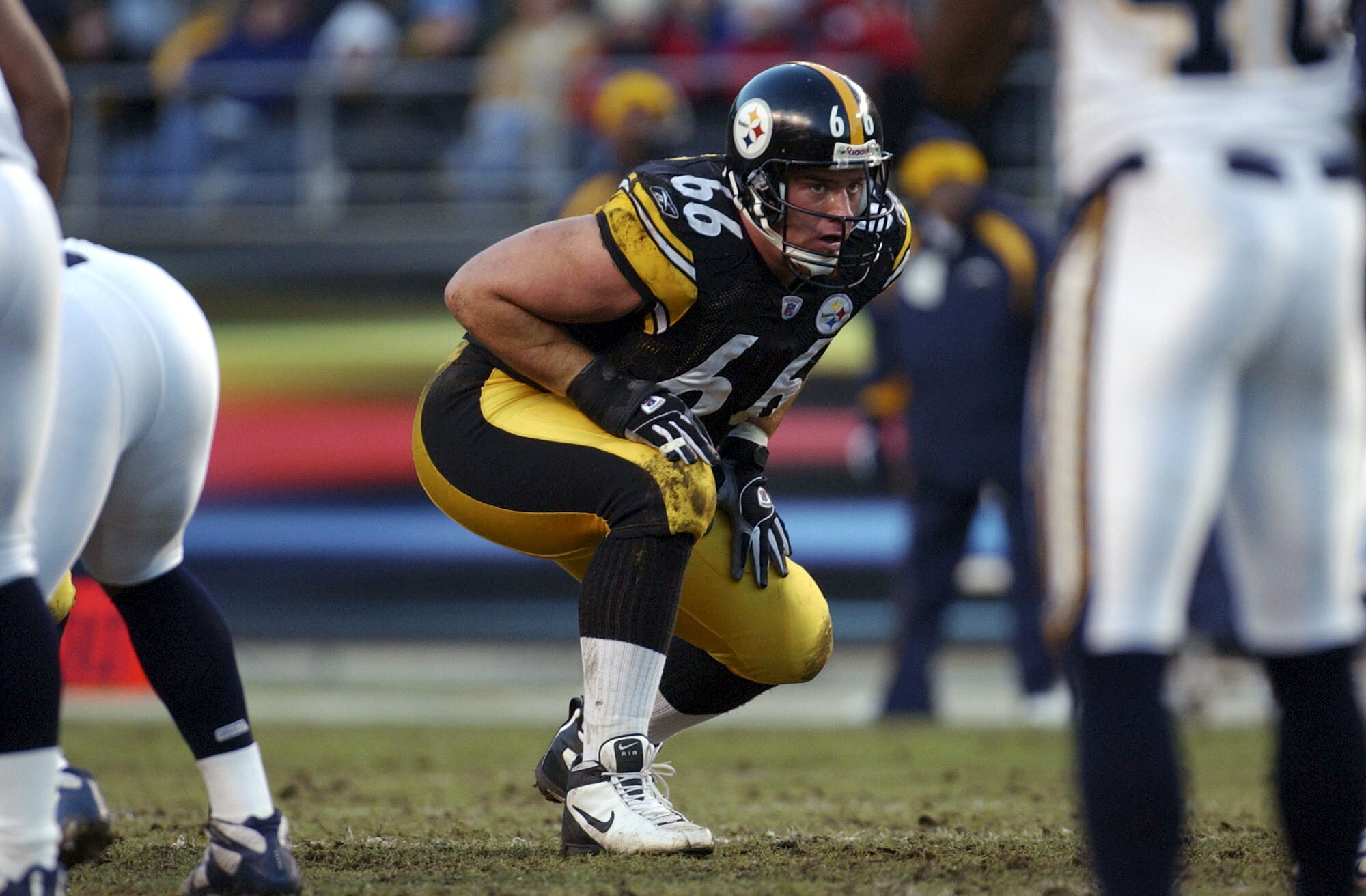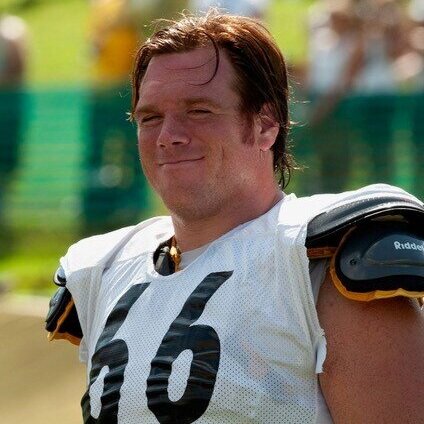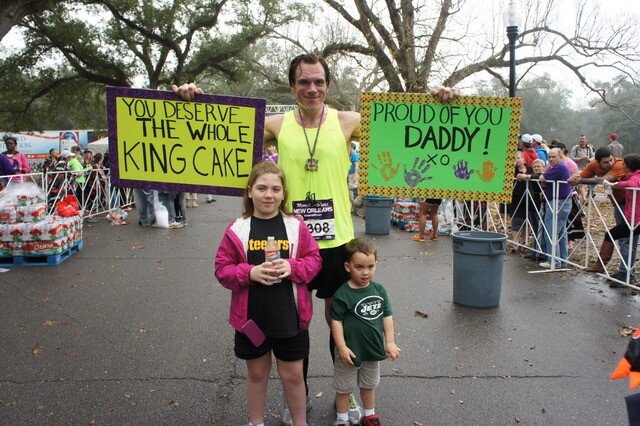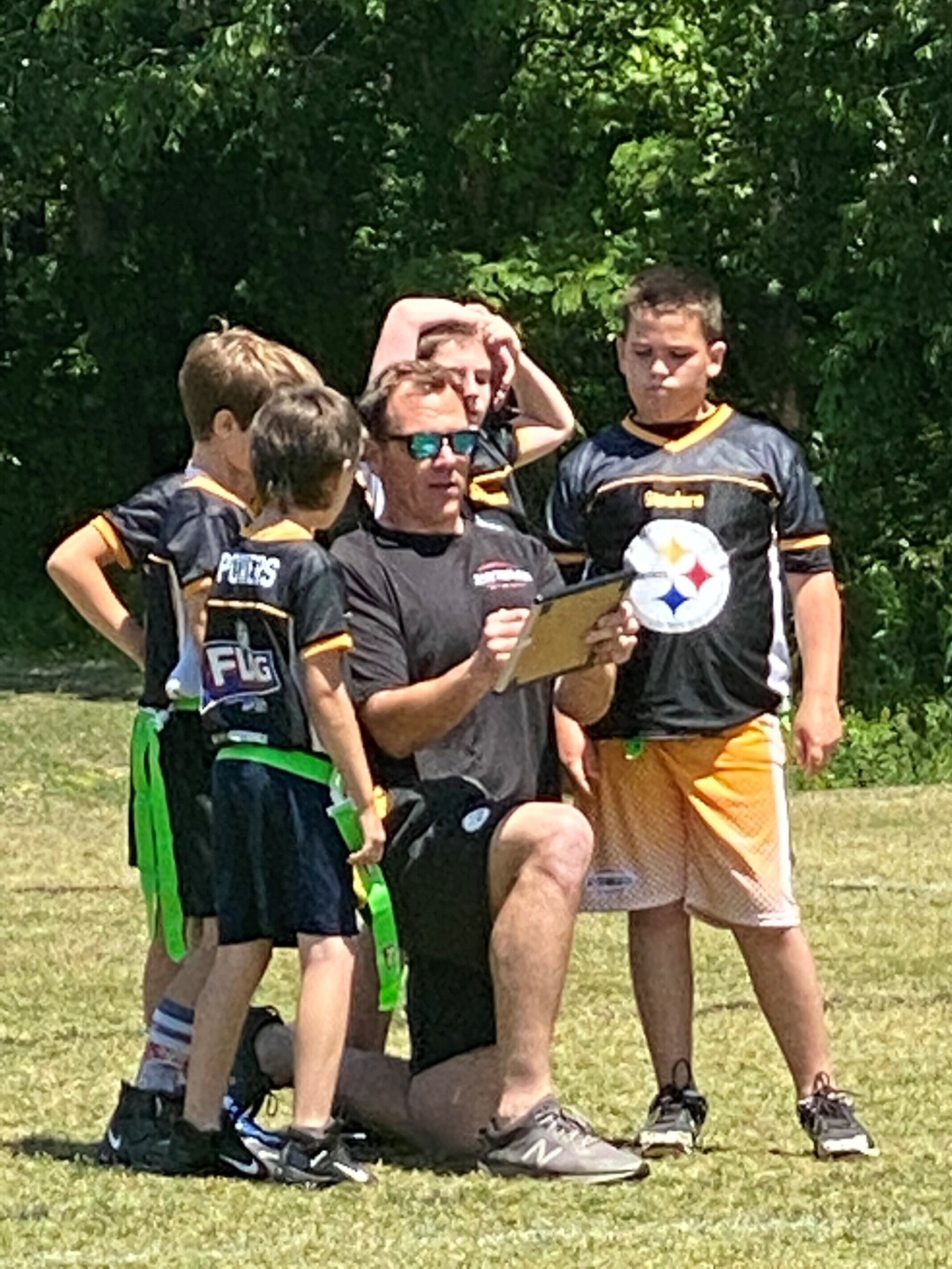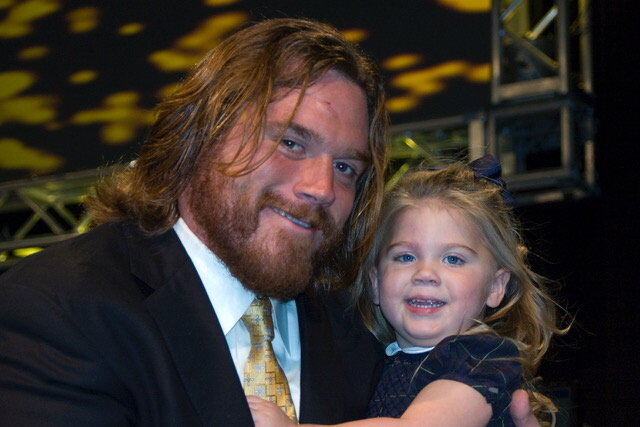Tough Decisions are Made by Tough People: Running in the Trenches with Alan Faneca
The Advocate
“See those kids over there? That’s what you need to be doing.”
Former NFL and LSU offensive lineman Alan Faneca recalls his dad’s impactful words from when he was 7 years old. His dad’s reference was to the kids playing football on the field across from Faneca’s soccer practice.
A short year later, Faneca found himself as an 8-year-old playing on the 9 and 10-year-old football team, a decision made as a result of his larger size. Basketball and baseball were his auxiliary sports from this age through high school, but he eventually replaced baseball with track and field, where he threw discus and shotput.
Offensive line was always Faneca’s sweet spot, but he did move around on the defensive side of the ball. As he would get older and bigger, his coaches moved him accordingly. He started at linebacker, then defensive end, then defensive tackle. Despite his versatility on defense, Faneca proved to be one of the most reliable and tenacious offensive linemen at the highest levels of football.
Faneca grew up on the West Bank, but attended high school in Houston, Texas following his parents’ divorce. He remained a huge LSU fan, with countless posters of the teams all over his walls. He attended basketball camps at LSU as opposed to football, but this basketball connection would later pave his way to being an LSU Tiger down the road.
The student who would keep the stats of Faneca’s high school basketball team happened to be LSU offensive line coach’s son. One day, he asked his dad how his pursuit of Faneca was going. His dad had no idea who Faneca was, which was the common theme amongst most college football coaches.
“I think his son told him, ‘you HAVE to get over here and see this kid’,” Faneca recalls.
Coaches began to take notice of Faneca, and he was committed to a different school the night before signing day. That night, he sat in his room, looking around at all the LSU athletes posted on his walls.
“I started counting all the LSU things on my wall, and stopped counting once I got to 20. I said to myself: ‘Oooh. I am screwing up.’ So I de-committed the next morning and committed to LSU,” Faneca said.
The change of heart proved to be the right decision, as Faneca went on to become a multiple time All-SEC honoree, multiple time All-American and an Outland Trophy finalist during his tenure as a Tiger. He was once a kid marveling over the LSU athletes on his wall, hoping he would one day be just like them. Reflecting on these achievements, Faneca realized that just a few years after dreaming about it, Faneca was the athlete on the poster.
“When I was there, you walk around the school and the facilities, and you see all the guys that were there before you. It was like an ‘I’m part of those guys’ moment. It was really special and an honor,” Faneca said.
With his senior year approaching, Faneca made one of the hardest decisions he ever had to make. He decided to forego his last season and declare for the NFL Draft.
“I didn’t really have my mind made up the night before. I woke up that morning, and it just felt right for some reason. It felt right that it was time to go. It was really hard to leave friends and the team. I was a leader on the team, and it’s hard to say goodbye to your guys, your senior season and all the things that come along with that,” Faneca said.
Similar to his college commitment, yet another difficult decision proved to pay off for Faneca. He was drafted in the first round of the 1998 NFL Draft by the Pittsburgh Steelers. Draft Day was spent celebrating with his family and friends, and although he had no knowledge of what was in Pittsburgh besides the football team, Faneca names the day as one of the most exciting of his life, and one he will never forget.
Throughout his career in the NFL, Faneca was an eight-time All-Pro selection, nine-time Pro Bowl selection, Super Bowl Champion and Pro Football Hall of Fame member. While Faneca is grateful for his natural talent, he knows his success came from his relentless drive and work ethic.
“I never rested on my ability. I definitely have a lot of God-given talent and ability. I took that as far as I could get it. There’s a lot of guys who probably have more talent than me, but they didn’t have the drive and push to go beyond that. I think when you start hearing those awards and accolades, that’s what got me further,” Faneca said.
In 2011, Faneca closed the book on his playing career. He began to think about retirement in the couple years leading up to the final decision, but struggled to accept that it was okay to leave the one thing that had defined the majority of his life. That acceptance ended up taking longer than his decision to retire.
“I went out to Arizona, played one year and they wanted me to come back. It took me a while to come to terms with the fact that I could walk away on my own terms, which is something 95% of the guys who play professional sports can’t do. It was something I had done for every year since I was 8 years old. I was a little bit, I don’t know if tired is the right word, but it felt like it was another one of those ‘it’s time’ moments. It felt right to take time to enjoy my family and enjoy that next phase,” Faneca explained.
Seems that you can take the boy out of Louisiana but you can’t take the Louisiana out of the boy!
Part of the next phase that Faneca referenced included his weight loss journey. He knew he would start trying to lose weight once he was done playing, and was open to seeing if it stuck or not. In typical athlete fashion, Faneca went for it, guns blazing.
“I lost 70 pounds in three months, then I decided to slow it down, and lost 30 pounds in the next four months. The day I lost 30 pounds, I was playing with Anabelle, my oldest. When I got up off the floor, I didn’t make that old man grunt that I always made. That was the first time I noticed it, and I was like, ‘Oh, that’s kind of cool’,” Faneca said.
Some of Faneca’s lifestyle changes included adjusting his caloric intake, portion sizes and style of eating. He chose to eat healthier options more intermittently during the day, in effort to avoid any bouts of extreme hunger where one may turn to less desirable options. Faneca made these changes while still in college, but had to keep his caloric intake very high in order to maintain his football weight. He remembers elaborate protein shakes that he would toss back 2-3 times per day, just to stay on track. Now, Faneca is able to continue his healthy patterns in a way that supports his post-football lifestyle.
With his playing career coming to a close, Faneca was faced with finding new ways to channel his athletic ability and competitive energy. His wife, Julie, would ask Faneca to come on runs with her. Faneca had run as a way to keep his cardio up before football season, but was still highly against the concept.
“I was like, ‘I’m done. I’ll do my 30-minute cardio and call it a day.’ I wanted nothing to do with it,” Faneca said.
Julie eventually convinced Faneca to start doing short runs together. Then, Faneca accompanied his wife as a spectator when she ran a Rock ‘n’ Roll marathon in Las Vegas. Here, he recognized why people love the energy and hype around races.
One day, Julie was not feeling well, but Faneca decided to still go out and run. He took a wrong turn, and the run ended up being twice as long as it was supposed to be. Although he barely made it back to his truck, Faneca was then hooked.
Faneca decided to start training for a half marathon. Since his longest run was already nine miles, one of Faneca’s friends told him a half marathon would be easy. Again, in typical athlete fashion, Faneca did not want easy. Thus, Faneca buckled down and committed to training for a full marathon. He would take a tennis ball on his long runs to bounce around for fun, and would start his 20 milers at 5 a.m. to get it all in. Faneca later found himself on the starting line of the 2014 New Orleans Rock ‘n’ Roll Marathon. The whole 26.2.
“The last few miles were very interesting. I had several coming to Jesus moments,” Faneca remembers.
Despite the grueling journey, Faneca accomplished his goal of finishing in under four hours. Although he thinks his time for full marathons has come to a close, he has done many half marathons and trail races. Before moving to Virginia Beach, Faneca lived in the Washington DC area, where he was a part of a trail race organization that always had a race on the agenda. He has not found anything similar in Virginia yet, so his runs are less frequent. However, Faneca enjoys the Peloton bike, as it is much more forgiving on the body. He also participates in Pilates and TRX and bodyweight workouts. He also hopes to get back into yoga following a potentially pending shoulder replacement.
Although football and long-distance running seem like polar opposites, Faneca was able to draw parallels between the two.
“It definitely takes the same amount of guts and perseverance that it takes to run, that it takes to train in football on the practice field. Especially like in training camp days, where you can leave and quit, or keep pushing. Those moments happen in running, too,” Faneca said.
In May 2021, Faneca was named Head Coach of the Frank W. Cox High School Falcon’s Football Team
In addition to his lifestyle changes, Faneca also had to experience a career change. Upon interning with the Steelers, he considered being a professional coach. However, once his family moved to Virginia Beach, a coaching position at Cox High School opened up, and Faneca was ready to see what he could do with the job.
It can be difficult for former players to be around their sport if they are no longer playing it. For Faneca, he is at peace with his new role after taking an appropriate hiatus from football.
“I had a friend who retired about two years before me, and he told me something was going on and I wouldn’t get it until I was done. It was the first Sunday after I retired, and I didn’t even realize it was football Sunday until 8pm. That’s when I got was he was saying. I took a step away for a moment, but now I’m re-inserting myself back into it,” Faneca said.
Now being on the other side of the sideline, Faneca’s mission is to teach his players life lessons through the great vehicle that is the sport of football. He believes he can help young boys become young men, while being an important piece in enhancing the community. However, most of all, Faneca wants to be a role model for his players.
Faneca has done just that thus far. He and his wife have used their platform for charity work, and they hope to inspire other athletes to use their platform for good as well.
As for his legacy, Faneca keeps it simple.
“For somebody who watched me play, they would know the type of character and man I am based on how I played, how passionate I was and the effort I gave.”

